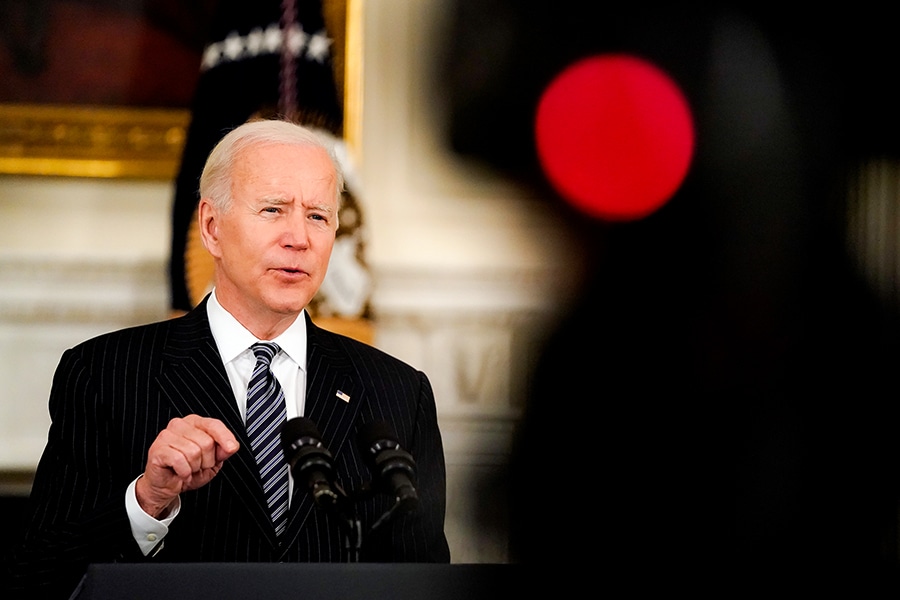
Biden backs Taiwan, but some call for a clearer warning to China
As China's power and ambition grow, and Beijing assesses Washington to be weakened and distracted, a debate is underway whether the United States should make a clearer commitment to the island's defence
 President Joe Biden speaks at the White House on Tuesday, April 6, 2021. The Biden administration is trying to calibrate a policy that protects democratic, technology-rich Taiwan without inciting a disastrous armed conflict.
President Joe Biden speaks at the White House on Tuesday, April 6, 2021. The Biden administration is trying to calibrate a policy that protects democratic, technology-rich Taiwan without inciting a disastrous armed conflict.
Image: Amr Alfiky/The New York Times
WASHINGTON — If anything can tip the global power struggle between China and the United States into an actual military conflict, many experts and administration officials say, it is the fate of Taiwan.
Beijing has increased its military harassment of what it considers a rogue territory, including menacing flights by 15 Chinese warplanes near its shores over recent days. In response, Biden administration officials are trying to calibrate a policy that protects the democratic, technology-rich island without inciting an armed conflict that would be disastrous for all.
Under a long-standing — and famously convoluted — policy derived from the United States' “one China” stance that supports Taiwan without recognizing it as independent, the U.S. provides political and military support for Taiwan but does not explicitly promise to defend it from a Chinese attack.
As China’s power and ambition grow, however, and Beijing assesses Washington to be weakened and distracted, a debate is underway whether the United States should make a clearer commitment to the island’s defense, in part to reduce the risk of a miscalculation by China that could lead to unwanted war.
The debate reflects a core foreign policy challenge seizing the Biden administration as it devises its wider Asia strategy. At the White House, the State Department and the Pentagon, which is reviewing its military posture in Asia, officials are re-evaluating core tenets of American strategy for a new and more dangerous phase of competition with China.
©2019 New York Times News Service




